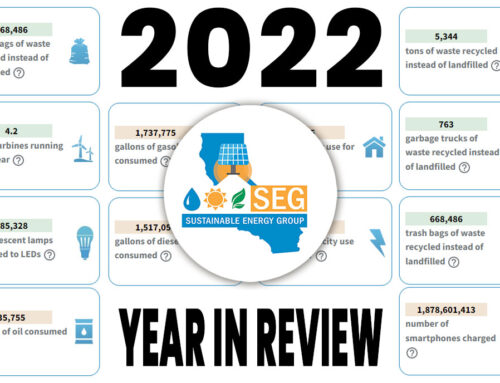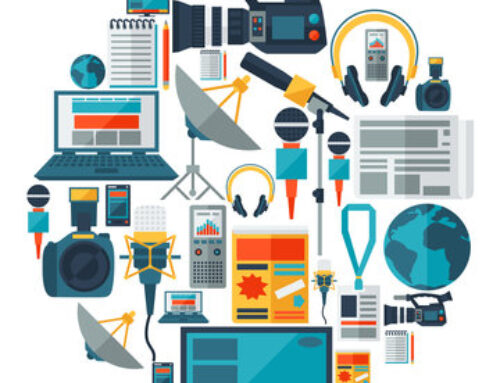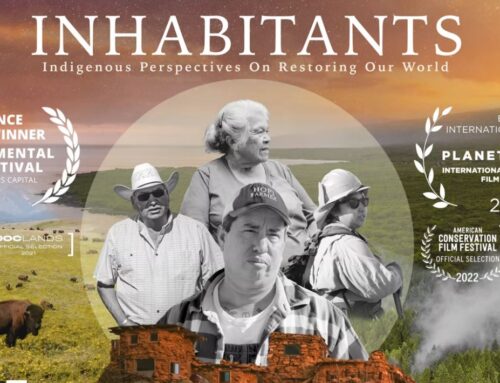How To Avoid Being Petrified As Effects From Pollution Rear Their Ugly Heads
A perspective from our Student Intern
Species inherit the earth, and as humans we are to have a relationship with the earth, a harmonious balance with our natural world.
It’s a pleasant concept, but a fleeting fantasy.
We continue to take from the earth and alter it to such a degree that our planet is becoming unrecognizable. Our relentless consumption and waste have been met with an equal and opposite reaction. Like medical staff attending to the ill, the earth is sick and requires environmentalism.
The environmental impacts of our actions are still afterthoughts. For example:
“Our company is wasteful, so let’s add jobs with ‘sustainability’ in the title.”
“Our phones use mineral resources that end up as hazardous waste, so let’s sell biodegradable phone cases.”
“Our coffee comes in plastic cups, so let’s use paper straws.”
“Our actions today will cause damage for decades down the line and we needed to stop burning fossil fuels yesterday, so let’s aim to be carbon neutral by 2045.”
Today, environmentalism is being incorporated, but not integrated, into our actions.
Considering adverse impacts to the environment after the fact awards companies and governments the social credit they need to feel guilt-free about what they are doing; society rewards these entities instead of making them accountable. Environmentalism needs to define what we are working on in order for beneficial change to happen. We need to act in the name of restoration not consumption.
In truth, we cannot right this wrong anytime soon.
We look around and we see the concrete-built environment, hell-bent legal institutions, and pollution denier perspectives that have been around long before the contemporary age of environmentalism. Our predecessors are only partly to blame, they weren’t aware of how bad it would get. No matter the intention, the impact is a society and framework that was built for one thing, progress at any cost. The reason why we are at these environmental crossroads is because our systems promote degradation – not because of a few bad eggs drilling for oil. Andrew Carnegie’s unscrupulous consumption of iron is but a drop in the global bucket.
Our cars emit toxic exhaust, our homes run on fracked and leaking natural gas, our food is produced with chemicals, and we work in buildings that used to be grasslands. Each of us are born into a world where we have no choice but to become architects of our own demise. One simply cannot avoid being part of the problem.
I took a class called Life-Cycle Assessment at California Polytechnic State University in San Luis Obispo. We estimated, tracked, and assessed the environmental impacts of product development until we were blue in the face, and even after 10-weeks of instruction, my professor walked into class drinking from a plastic Starbucks cup. The irony was not lost on us, but more importantly it showed that consumption is all around us and embedded within our daily routines. Our brains demand instant gratification, and our world is punishing us for that.
Even when we try to do it right, like offering paper bags instead of plastic at the grocery store, we do damage. It takes 4-times the energy to create pulp and manufacture a paper bag than it does to make a single-use plastic bag and plastic bag production produces a lower concentration of toxic chemicals than paper bag production.
Our machine wasn’t built to make paper bags, it was built for plastic bags. Our society put the wagon before the horse, and now we have a problem. A problem full of contradictions, constantly moving parts, influences, self-destructing systems, and the looming presence of catastrophe. Sure, some industries are adapting, and we are witnessing cultural paradigm shifts, but until our systems are re-built under a new value system, we will continue to redline this engine until it blows.
That is why the whole truth of personal and collective environmental impacts needs to be integrated into education. In school students learn about climate change, but there is a veil around the truth. Perhaps the facts of the matter-are too bone chilling or demoralizing, but kidding ourselves is only perpetuating the severity of those facts. When we sugar coat the impacts of our actions and ignore reality, culpability is deferred to everyone but oneself, and the responsibility of solving the problem is everyone else’s to deal with.
Every day we are posed with environmental data that all but says “we are so far past repair, give up”. Unavoidable rise in temperature, the inevitable extinction of thousands of species from the face of the earth, human lives being lost to climate disasters…The I.P.C.C’s report is the best science we have to offer, and I can all but wish there was a clerical error that added zero’s where they shouldn’t be.
We calculate exactly what’s happening, down to the year that we will run out of topsoil, sea ice, and even bananas, the year Florida will be underwater, and the year dengue fever will run rampant throughout the United States. The worst part is that there is not a darn thing we can do to fully right the wrongs of the past and prevent those terrors.
Addressing effects of pollution is the world’s most consequential laundry list. Each task requires global change that even if implemented at this very moment, and a sustainability utopia was formed, would do nothing to save us from the effects of what’s already been done. It’s like we are floating through a nightmare. We try to yell but no sound comes out. We try to fight but our fists are moving in slow motion. We are trying to put a Band-Aid on a life-threatening wound.
Studying the state of our planet and understanding how backwards we have set up the world – in which a small number of people benefit at the expense of everyone else – leaves an individual with an all-consuming hopelessness. It’s a wonder how students in my class don’t turn to stone.
But we hold on.
Because there is not a unit larger than the individual. Everything that’s been done to both negatively and positively impact our planet, has been done by an individual. Even organizations and longstanding establishments are just collections of individuals that have lent themselves to a cause. You can look at an environmental problem and deem it impossible to solve as an individual or you can view yourself as a resource. Your time, effort, knowledge, and expertise as a resource, that can be lent to groups, causes, and issues that you believe in.
That is how everything has been done, ever.
Changing the world will take some time so for now, it starts with one person. It starts with one person thinking, “maybe we need to do something about this,” as self-realization is truly the cornerstone of progress. One person can teach their friends about environmental science and spread educational seeds far and wide. Sure, seeds will only grow with the right conditions, but at least some will bloom.
At least I told them, at least I tried.
We are in the era of pollution awareness! Evidently, some people in power today would place slowing the warming of our Earth lower on the list of priorities, but in the next decade or two, people who are being raised with this awareness of pollution will assume positions to do what should have been done. At that point the environment will no longer be an afterthought, it will be integrated into everything that is done.
Right now, effects from pollution is science based, it is the disturbing data and the red lines on graphs.
This data is fuel, building up in each of us.
We as individuals are the match.
Societal awareness will strike that match.
So yes, effects from pollution is daunting, but I am excited for the next 20 years. We are learning more and more every day, becoming continuously impassioned, and things will change extensively as sustainability advocates enter decision making roles.
People smoked a lot more cigarettes before we learned they were unhealthy.
People drove without a seatbelt before we learned it was dangerous.
People burned a lot more coal before we knew it was harmful.
Mistakes, accidents, lessons – call them what you will – all these things have caused suffering.
But now, Cigarette packs have warning labels. Road laws require seatbelts. And more solar panels are being put up than ever before.
We can be consumed by our mistakes, kicking ourselves for letting it get this far, resigning to the idea that it will only get worse, or we can keep pushing for progress in the face of this miserable and absurd state of our planet. A sustainable world won’t be built overnight, so for now I choose to find pride, joy, and purpose in what I can do. It won’t be perfect anytime soon, or ever for that matter. That is why we must make each step more important than the final goal.
A single person putting solar panels on their house and growing their own food won’t save our planet, but change will come when that one person chooses to do so anyway, and the world follows suit.
Let’s be the heroes who never gave up trying.





